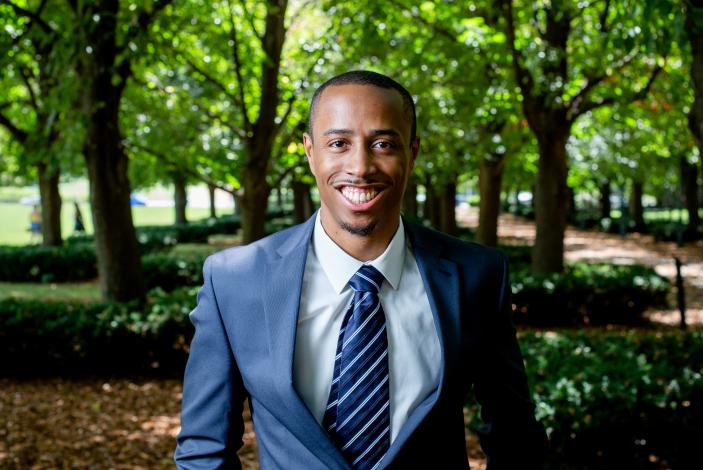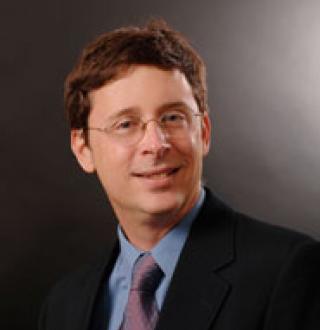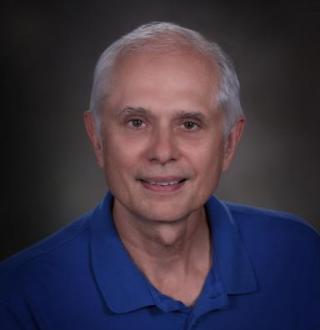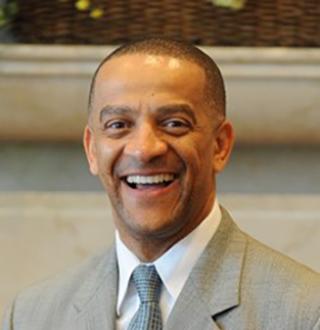
A Seat at the Table

Monroe Gamble
Credit: Christopher Smith
By Kelsey Allen
In 2018, Monroe Gamble became the first Black research assistant at the Federal Reserve Bank of San Francisco. The support he received throughout college, including at the Trulaske College of Business, helped get him there. Now he wants to strengthen the pipeline.
Monroe Gamble, BS BA ’17, doesn’t compare himself to anyone. It would be easy to do: He didn’t grow up with money. He worked three jobs to support himself through school. And it took him seven years at multiple colleges before he graduated with his business degree.
“But you can’t control their background or where they started versus where you started,” Gamble says. “You can’t control whether or not you’re the smartest person in the room.”
It’s a lesson he learned from Daniel Turban, a management professor emeritus in the Trulaske College of Business. And it’s something he thought about a lot during his two years at the Federal Reserve Bank of San Francisco.
“There is one thing in this world that you can control, and that’s how hard you work,” says Gamble, who became the first Black research assistant at the San Francisco Fed when he was hired in 2018. “You’ve got to bring effort, and you’ve got to bring energy.”
Now a research fellow at the NYU Stern School of Business, Gamble is more determined and fired up than ever. But he wasn’t always a passionate economist.
Building a Foundation
Gamble grew up in Kansas City, Missouri, but most of his family lived in Valdosta, Georgia, where his grandfather, a brick mason, constructed many of the city’s buildings and neighborhoods. “Being a Black businessman, it meant a lot,” Gamble says. “He did a lot for the community. Because he was a builder, everyone admired him, and I wanted to be like him, too.”
With a full scholarship to Virginia Tech, Gamble started studying architecture and building construction. Enrolled in the Honors College, he was surrounded by valedictorians and salutatorians. During a 3 a.m. study session at the 24-hour library on campus, Gamble ran into a classmate who was reading Atlas Shrugged. “This book was so thick,” he says. “It looked like a dictionary.” Gamble assumed he was reading it for a class — but he was reading it for fun. “That really left an impression on me,” Gamble says. “I’d never picked up a book for fun. From then on, I was going to read books.”
A few months later, while interning for a construction company in Columbus, Ohio, Gamble wandered into the public library. Looking for books on the stock market, he pulled an old econ textbook off the shelf. “This stuff just makes sense,” he thought to himself. “It explains the world and why things are why they are. That’s where economics got stuck in my brain.”
Back on campus for his sophomore year, Gamble enrolled in 24 credit hours the first semester. “I was trying to keep up,” he says. “But my body gave out on me.” To care for his health, Gamble dropped out of Virginia Tech and moved back to Missouri.
Land of Opportunity
For a time, Gamble worked at a department store while taking classes at a community college. But being back in his old neighborhood wasn’t serving him. “I went from being surrounded by all these honors kids to being back home with kids from my high school,” he says. “You see there’s a difference.”
He had friends studying at Mizzou, and Columbia sounded like a better fit. So while Gamble bounced from one friend’s couch to another friend’s floor, he worked three jobs to try to get back on track. He’d arrive at Dick’s Sporting Goods by 5 a.m. to unload trucks. In the afternoon, he’d head to JCPenney where he sold men’s suits. Once the mall closed, he’d hop in his car and deliver pizzas. There wasn’t time for school.
But then Shelter Insurance offered him a job as a customer service representative. “They paid something like $12.50 an hour, which was insane,” he recalls. “That job allowed me to compress everything I was doing.”
With a more manageable workload, Gamble enrolled at Mizzou. An honors economics course with Chancellor’s Professor Michael Podgursky cemented his decision to major in economics. While walking through Cornell Hall one afternoon, Gamble saw a sign for the Vasey Academy, a mentorship program for talented underrepresented minority students that comes with a $1,000 scholarship. “If I could get that scholarship,” Gamble thought, “I wouldn’t have to work as much at Shelter. If you divide 1,000 by 12.50, that’s a lot of hours! That’s 80 more hours I can dedicate to studying.” Through the Vasey Academy, he connected
with then-director Daryl Smith — Gamble’s first Black professor in the business school — attended seminars focused on business trends and was exposed to networking opportunities with corporate executives.
A friend’s father, who immigrated to the U.S. with nothing, once told Gamble that there are opportunities everywhere. Gamble didn’t understand, but he listened because this man had landed a job at NASA, quit to start his own company and was now a multimillionaire. “He said opportunities surround you, but you just don’t see them because you were born here,” Gamble recalls. “You’ve got to be ready when it comes.”
So if an email landed in his inbox with an opportunity, Gamble acted on it. If he was thinking about joining a program, he applied to it. And he ended up participating in undergraduate research programs throughout the country.
At Ohio State, he worked with Lucas Coffman, an assistant professor who had studied under Nobel Prize winner Al Roth at Harvard. At Michigan State, he conducted research with Jeffrey Wooldridge, author of the well-known textbook Introductory Econometrics: A Modern Approach, and underwent eight weeks of intensive training in microeconomics, math, econometrics and research methods through the American Economic Association Summer Training Program. At the University of Michigan, he was a researcher in the Machine Learning Group at the Big Data Summer Institute. And at Mizzou, through the McNair Scholars Program, Gamble and Assistant Professor of Finance Sandy Shastri, now a senior associate at the Brattle Group, collaborated on a study examining the impact of the emergence of exchange traded funds as alternative investment vehicles to mutual funds.
By the time Gamble graduated from MU in 2017, he could count bestselling authors and Ivy League researchers among his mentors. He applied to jobs at the Federal Reserve Board, the Federal Reserve Bank of Chicago and the Federal Reserve Bank of San Francisco. “But I didn’t get any love from the Fed,” Gamble says.
So he attended Harvard University as a participant in the Research Scholar Initiative and applied to the Federal Reserve again the next year. This time, he got a job. “One of my friends was like, you’re the craziest person I know to leave Harvard, but I had to do it.”
Investing in Black Economists
At the Federal Reserve Bank of San Francisco, Gamble supported the academic and policy research of senior economists. But being the first Black person to hold a research assistant job was challenging. “It was hard. It was so hard,” Gamble says. “It’s a very isolating thing to not see any economists who look like you.”
He found another mentor, this time in Mary C. Daly, the president and chief executive officer of the bank — and a Missouri native. Daly dropped out of high school at 15, worked odd jobs, and eventually earned a GED and bachelor’s degrees from the University of Missouri-Kansas City. Her story and support gave Gamble the energy boost he needed to keep going.
He joined the Federal Reserve’s basketball team — “If I wasn’t an economist, I would probably be a basketball coach,” he says — served as a mentor for the Growing Opportunity for Leadership and Diversity Internship Program, was promoted to Daly’s personal research assistant, and led bank tours.
“I really loved talking to students because I wanted to encourage them: Try anything. Don’t get discouraged if you’re not going to college. If you get Cs, you still can make it. It’s not too late,” he says.
Before he left the Fed in 2020, he pushed for changes to the bank’s hiring practices. His efforts were covered in a New York Times article, “Why Are There So Few Black Economists at the Fed?”
Today, Gamble is in a predoctoral program at New York University, where he’s working with leading Black economist Peter Blair Henry to study how political and economic reforms affect emerging economies’ access to capital. His goal is to get into a top PhD program and study financial economics.
And one day, he’d love to be a professor at Mizzou. “There aren’t very many Black professors in Trulaske,” Gamble says. “That’s significant because tenure-track professors conduct research. By having Black researchers, it opens the door a little wider for more things to be looked at and in different ways. If you’re only getting one perspective, then you don’t get the whole picture. No matter how great the intentions are, it just isn’t the same because you don’t have everyone at the table. We want our researchers to be researching everything from every angle.”
“But I don’t think Mizzou should wait for me,” he says. “They should start now.”


